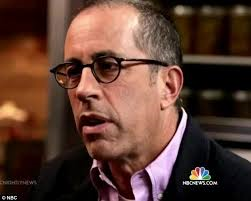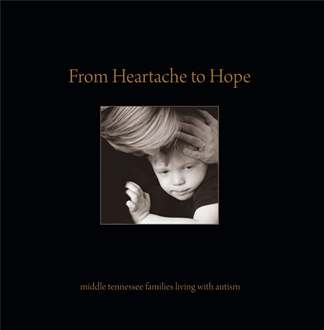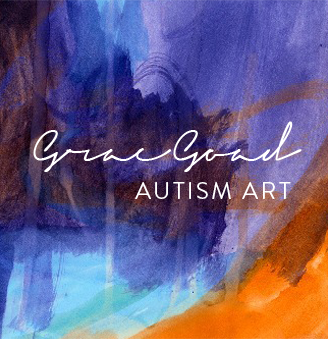Today, Christine Mather, writer and theater educator, returns here, to “The Journey with Grace,” sorting aloud “the tragedies and controversies besieging the autism community.” Christine thought this post was too off-topic for her blog, Autism Reads, so I offered to give it a platform here. I think you’ll agree. Her thoughts deserved to be shared.

[The controversy over this] throws me for a loop. Apparently some of us fear that all people with autism will be dismissed as potential billionaire comedians who don’t need any help. Others opine Seinfeld benefits from this revelation. I don’t get it. How exclusive are we? Seinfeld hasn’t asked for anything, and he’s given generously of his time and talent to many communities [including ours]. So he self-diagnosed. So do thousands of adults. Some get an official diagnosis, some don’t want one.
I do not have autism, but I think of myself as on the spectrum—I am connected to my son. I can’t let grammatical errors go any more than he can. Certain lights and sounds bug me. I get squirrely if people digress, yet digress constantly myself. I’m not saying give me the same resources as my son. I’m saying, we’re more alike than different. Let’s love our neighbors as ourselves and give them what they need.
There is more than one type of autism. I am convinced of this. My math and music son is very different from his age mate who is always in costume, and both differ from kids who use iPads as their main mode of communication, and so on. But, while I think most people believe this, there also seems to be a belief that some types of autism are more authentic or important than others.
How afraid are we? Are we so fearful that we can’t acknowledge that some people on the spectrum have amazing gifts?
There are divides. Posts about the costs of adult diapers remind me how many parents work to just keep their child clean and healthy with diminishing hopes that their child will ever be able to handle the most basic of self-care. Some people with autism need intensive help and services that may exhaust their caregivers. Some may never exhibit special talents, especially not talents that bring money, fame, or independence. Others may contribute many gifts to the community, and yet still need significant help in their daily lives. But we are all unique individuals with our own special way of looking at the world.
What if we looked for and nurtured whatever that way was?
What if everyone thought of themselves as being on the spectrum, and recognized that we all have gifts and challenges? What if we focused on what people need and truly gave them and their caregivers support so that parents and advocates did not have to worry that a celebrity’s casual remark would rob them of desperately needed help?
What if we all deliberately created an inclusive world?
Which brings me to the most serious controversy, are we living in a society that believes people with differences, especially disabling differences, are better off dead? And do discussions about the inadequate services available for people with disabilities add to or bolster that belief? Is it necessary for us to hate and demonize murderers to protect innocent lives? My short answers are no, no, and no. But, of course, it’s more complicated than that. But for me, one idea is crystal clear: We need to remember that we’re talking about people. Should we kill people who are different? Should we help people who need help?
The belief that death is a blessed release may come from religion (“heaven is better than suffering”) or self-centeredness (“people with disabilities waste our resources”). My experience is there is no way you will convince anyone entrenched in these beliefs to think differently. Faith in an afterlife helps us not fear death, and, to grieve less for those we lose to it. Excluding people who need help, eases our fears that we will not get the resources we need—which goes back to the Jerry Seinfeld controversy.
Those who actually act on the belief that some people are better off dead may or may not be influenced by these cultural attitudes. Most reports describe those who kill their children as having severe mental illness. Their perceptions of the world are so skewed it’s doubtful they have any meaningful understanding of how others think. People with autism are not the only ones who think that everyone else thinks the way they do.
The irony is that recent tragedies have divided people who absolutely agree that we should help each other and not kill people with differences/disabilities. The division occurs because they disagree on where to put all the passion that they feel.
Here’s my belief (I don’t think my beliefs are “The Truth”). We should honor the dead and serve the living. If the circumstance of the death teach us how we might help a family and save a child, we should learn from them. Hate won’t help. The prospect of being universally reviled is not going to stop anyone far enough gone to murder their own child. Love might.
Let us show love for all the living children with their gifts and challenges. Do you love the child screaming in the supermarket? Do you love the child’s mother/grandmother/father who screams right back?
If you’ve had the patience to read this far, you probably do. Thank you. Perhaps we can distract the child with a greeting, or give the adult an understanding smile. [The kind that says,] “I’ve been there. I am not judging you. I am wishing you peace.”
Then we can go home and write/call/email our legislators to provide insurance/housing/education/career training and other support for people who need these services. The costs may be high, but the costs of not doing so are so much higher.




